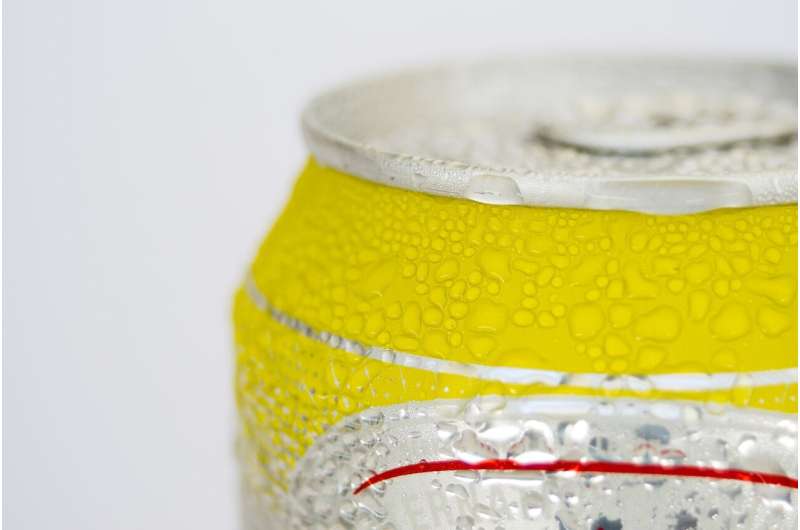Credit: CC0 Public Domain
A team of researchers at the University of Denmark has tested the popular notion that tapping a can of beer after it has been shaken will prevent it from spraying when it is opened. Their paper describes a trial they carried out along with their conclusions, and is available on the arXiv preprint server.
Anyone who drinks beer on a regular basis knows about tapping the beer container a few times to get it to settle down before opening it. Some drinkers tap the lid or the top, and some tap the side of the bottle or can. Whichever approach is used, the goal is always the same—to prevent beer from spewing out when the can or bottle is opened. Beer and soda drinkers also know that shaking bottles or cans before opening is a big non-no—doing so will result in beer spewing out like champagne. In many circles, it is believed that some tapping can reduce or prevent such spewing—but as the researchers with this new effort note, the idea has never been tested scientifically.
To find out if tapping works, the researchers enlisted the assistance of a beer company and were rewarded with over 1000 donated cans of beer. Next, they enlisted student volunteers as testers. First, all of the cans were weighed to measure the contents. Then half of the cans of beer were put on a mechanical shaker for two minutes; the other half were left as they were delivered. Then half of the volunteers in both groups were asked to tap a can on its side three times before opening it. All of the cans were weighed again to see how much beer was lost after the can was opened.
The researchers report that they saw no benefit to tapping the can before opening—tapped cans, whether shaken beforehand or not, lost just as much beer after opening as un-tapped cans. The researchers also report that the beer was not wasted—it was given away to anyone on campus who cared to drink it.
More information: To beer or not to beer: does tapping beer cans prevent beer loss? A randomised controlled trial, arXiv:1912.01999 [physics.pop-ph] arxiv.org/abs/1912.01999
Journal information: arXiv
© 2019 Science X Network
























